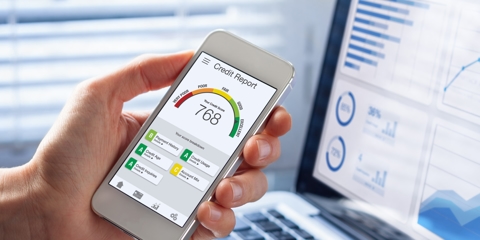As the weeks continue in the COVID-19 pandemic, people are worried for their health and the health of their family members. But, of course, that’s not all. They’re also deeply worried about their financial health. As residents in Georgia and other states are ordered to shelter in place, and as non-essential businesses are shut down or curtailed, people are rightfully worried about when they will be able to work and how they will pay their bills.
At Holston & Huntley, we understand these fears, and we want to help in any way we can. In this post, Buddy Huntley gives his answers to the most frequently asked questions about COVID-19, debt, and how to make the most of your money during this crisis.
What should I do with my tax return and stimulus money to maximize my money?
First, I’m advising all of our clients not to use their tax returns or stimulus money to make minimum payments to creditors, such as credit card companies. Those minimum payments barely pay the interest on those debts, and will not help you get out of debt.
On the other hand, I highly recommend that you use your tax return and COVID-19 stimulus check to make your monthly payments on your mortgage, your car, and other secured debts that are essential to your daily life. You may also, at this point, want to contact these lenders and ask if they are offering any temporary loan forgiveness or other programs to help at this time. Some mortgage lenders, for example, are allowing people in need to suspend mortgage payments. But you must contact them first and find out if this is an option.
What advice are you offering to those who have lost their jobs due to COVID-19?
If you have lost your job or you have been laid off due to enforced business closures or other fallout from COVID-19, you should file for unemployment and other social programs (e.g., food stamps) immediately. Unemployment benefits have been expanded in response to the pandemic, and you may be eligible, even if you did not work for an employer who carried unemployment insurance. You can find out more in our article in Law.com’s Daily Report or here.
In addition to government financial relief programs, you should also look into private programs that may help people in your industry. You can find links to a few of those programs and some other resources here.
Why are people afraid to talk about bankruptcy when they are struggling with debt?
As this crisis has shown us, there are things much worse than filing for bankruptcy, which actually gives you a fresh start. People have often heard frightening stories about permanent bad credit scores, being unable to qualify for loans, and other repercussions following them for years to come after a bankruptcy. I can’t stress enough: These rumors and old stories are highly inaccurate and often completely untrue.
Bankruptcy helps you start over with a blank slate (Chapter 7), or it gives you the means to pay down your debts with a plan you can live with (Chapter 13). Change may be scary, but bankruptcy really shouldn’t be.
What are the myths about filing for bankruptcy? What are people afraid of right now?
In general, there are five major myths that people always ask me about. They believe that filing for bankruptcy will mean they’ll lose all their belongings; that they won’t be able to buy a car; that they won’t be able to qualify to buy a house; that their credit score will drop dramatically; and that they won’t ever have good credit again.
I want to be completely clear: These are all myths – they’re not true. In fact, filing for bankruptcy could be the best way to keep your belongings, repair your credit, and set yourself up to qualify for better loans down the road to buy a new car or home.
As I tell my clients, bankruptcy is an avenue out of debt, and it’s not permanent. There are even ways to buy a home while in bankruptcy. If you’re afraid of filing for bankruptcy during this pandemic, or after, please don’t hesitate to call us at Holston & Huntley, for a free consultation. My team and I would love to help you on your way to financial freedom.
How are you helping your clients to overcome debt during this pandemic, and beyond?
We’re offering special pricing while people are impacted by the COVID-19 pandemic. We know that you may be laid off, or your business may be suffering, but we believe you should still be able to hit the financial reset button – and we’re doing everything we can to help. Call us today at (404) 620-3337 to learn about our special bankruptcy rates and how we can help you get out of debt.





